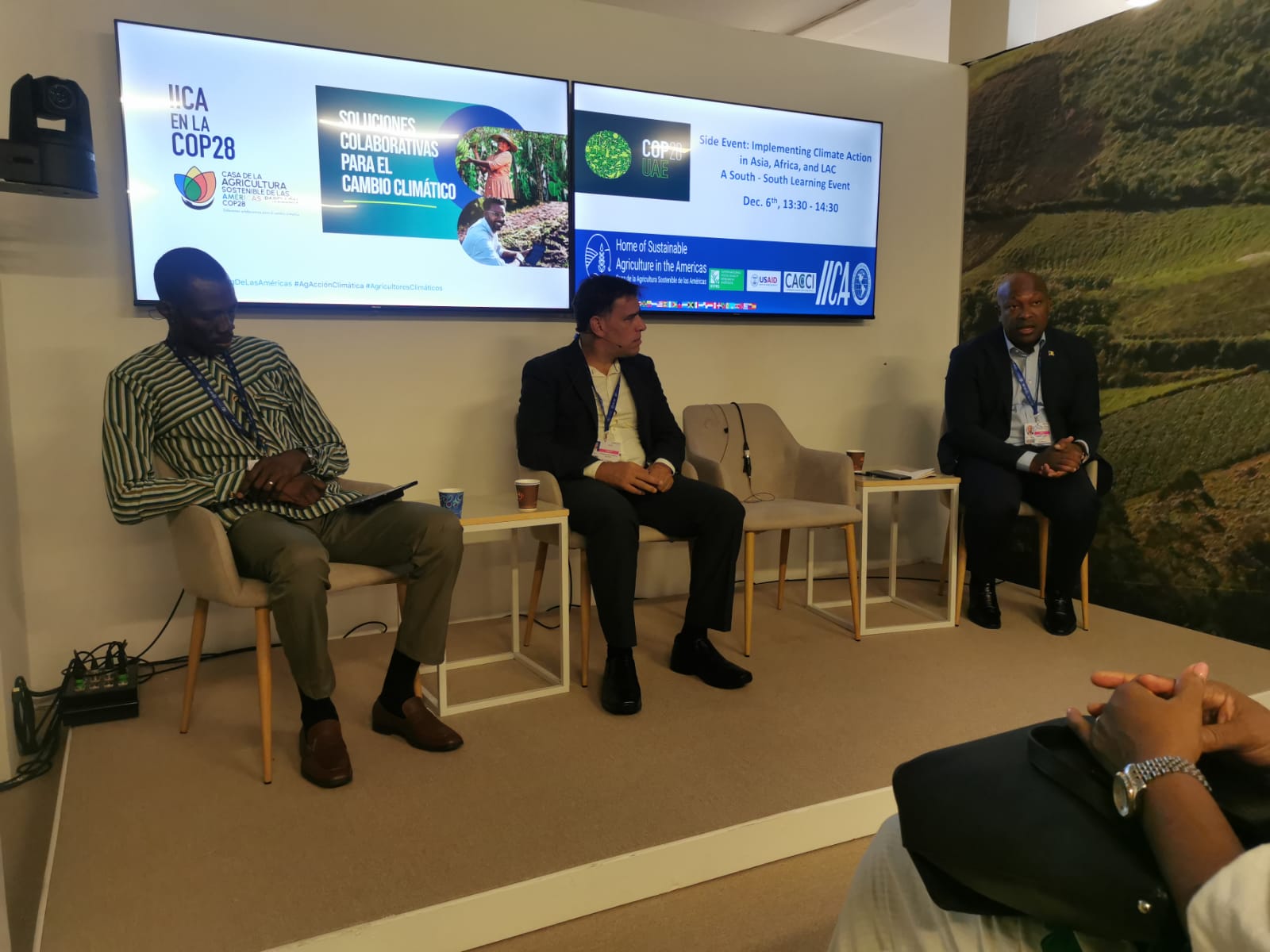Saboto Caesar, Minister of Agriculture of Saint Vincent and the Grenadines explained that climate negotiations are also part of the Caribbean region’s strategy to increase sustainability and food security.

Dubai, 8 December 2023 (IICA). At this year’s COP28 in the United Arab Emirates, Caribbean countries expressed their conviction that the world’s agrifood systems are crucial for humanity and defended the strong correlation between their goals of adapting to climate change and reducing their hefty food import bill by 25% by 2025.
Saboto Caesar, Minister of Agriculture of Saint Vincent and the Grenadines, is part of the delegations participating in this year’s Conference of the Parties (COP28) to the United Nations Framework Convention on Climate Change (UNFCCC) in Dubai. Together with authorities from Asia, Africa and Latin America, he explained that climate negotiations are also part of the Caribbean region’s strategy to increase sustainability and food security.
After the event, which took place at the Home of Sustainable Agriculture of the Americas pavilion, installed by the Inter-American Institute for Cooperation on Agriculture (IICA) and strategic partners from the private sector, Caesar described the ways in which various Caribbean agencies are incorporating these objectives into their strategies.
“Because the world’s agrifood systems are crucial for the livelihood and survival of human beings, agricultural producers in all countries play a key role in achieving the Sustainable Development Goals”, he maintained.
According to Caesar, the Caribbean Community (CARICOM) has set the goal of cutting the food import bill by a quarter by 2025, with the support of partners such as IICA. The Organization of Eastern Caribbean States (OECS), in turn, is developing a transformation strategy to attract resources to facilitate greater agricultural production and productivity.
“Furthermore, within the framework of the pro tempore presidency of the Community of Latin American and Caribbean States (CELAC), we have provided Honduras with a carefully crafted plan on food and food security, which is the result of honest regional dialogue among technical specialists from multiple countries”, remarked Saboto.
Saint Vincent and the Grenadines holds the pro tempore presidency of CELAC in 2023, while Honduras will serve in that capacity in 2024.
“The plan focuses on increasing the sharing of technologies within the region to address climate adaptation challenges. It contains several methodologies to guarantee the participation of youth, given their positivity and exceptional talent, which qualifies them to take the reins of climate action”, added the Minister of Agriculture of Saint Vincent and the Grenadines.
Caesar thanked the Director General of IICA, Manuel Otero, for driving the participation of agriculture of the Americas at COP28, “in a manner that is truly making a difference”.
Otero reiterated the commitment of the hemispheric agency to supporting these actions while leaving no one behind. “We are promoting an agriculture sector that is more inclusive, more sustainable, and that efficiently utilizes the resources afforded by biodiversity to transform them into food”, he stated.
Speaking to fellow agricultural authorities from Africa and Latin America in IICA’s pavilion at COP28, Saboto Caesar explained why it is crucial to focus on resilience and adaptation.
“In 2010, Saint Vincent and the Grenadines was struck by hurricanes that destroyed 98% of its banana industry. Three years ago, we witnessed the worst drought in 50 years in our country. To recover, we have tapped into the knowledge of our brothers and sisters in all the regions”, he commented.
More information:
Institutional Communication Division.
comunicacion.institucional@iica.int











